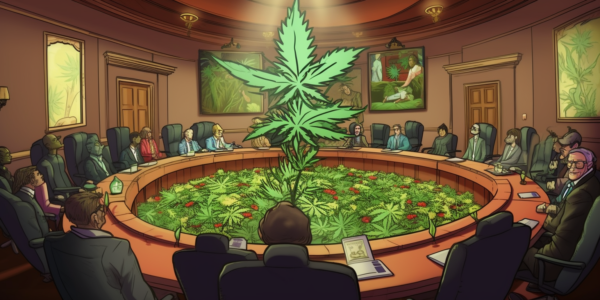by Dennis Crouch
United Cannabis Corp (UCANN) vs. Pure Hemp Collective, --- F.4th --- (Fed. Cir. 2023)
The UCANN vs. Pure Hemp patent case has come to a close with the Federal Circuit affirming the district court's decision to deny attorney fees to Pure Hemp. The original infringement lawsuit was filed in 2018, with UCANN suing Pure Hemp for infringing US Patent No. 9,730,911, covering various high concentration cannabis and CBD extract formulations. During the litigation, UCANN filed for bankruptcy, causing the case to be stayed, and eventually, the parties stipulated to a dismissal of the infringement claims with prejudice. However, the stipulated dismissal did not include any discussion of attorney fees -- leading to the current appeal.
Following the dismissal, Pure Hemp moved for attorney fees and sanctions, arguing that UCANN's counsel committed inequitable conduct during patent prosecution and that UCANN's litigation counsel had a conflict of interest. The district court sided with UCANN and denied attorney fees, stating (1) that Pure Hemp was not the prevailing party and (2) that Pure Hemp did not prove that the case was exceptional. The Federal Circuit has now affirmed the decision, finding that the district court did not abuse its discretion in finding the case unexceptional. Although district court the district court erred in not finding Pure Hemp to be the prevailing party, the error was harmless.
To continue reading, become a Patently-O member. Already a member? Simply log in to access the full post.
